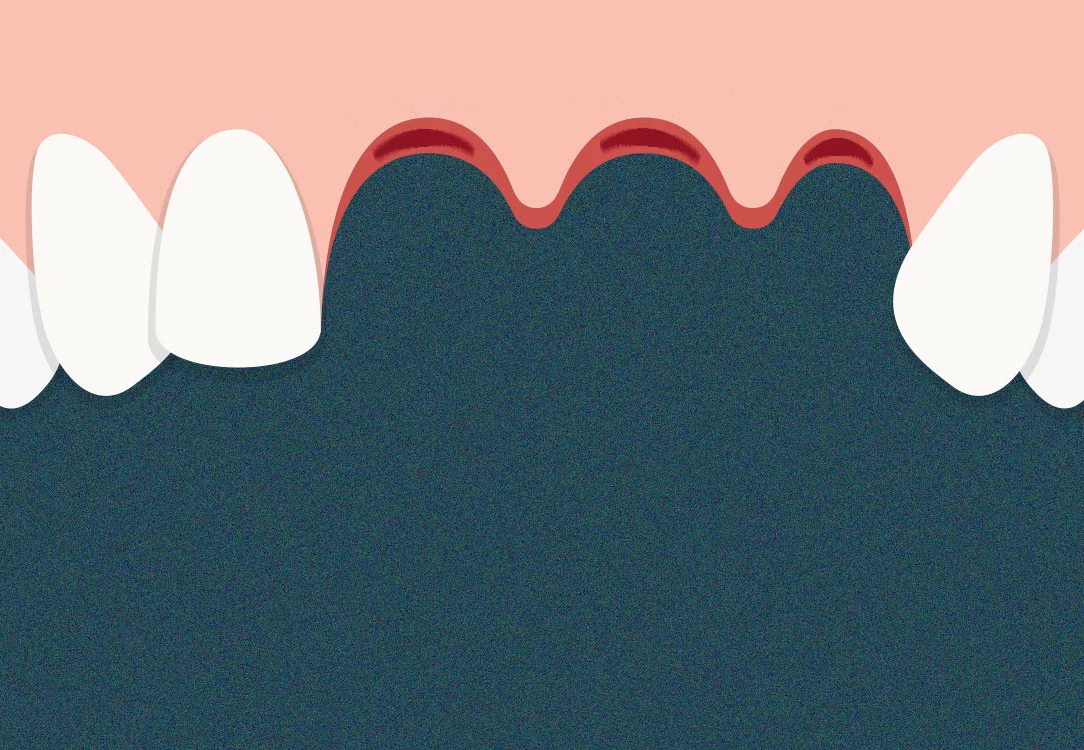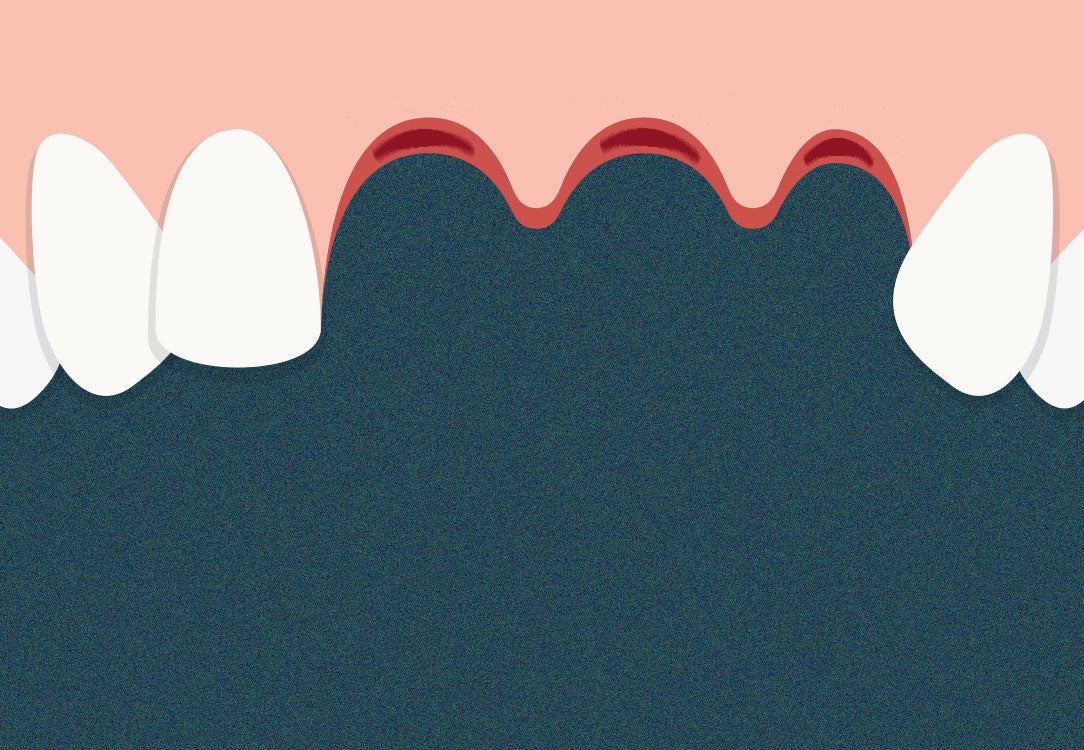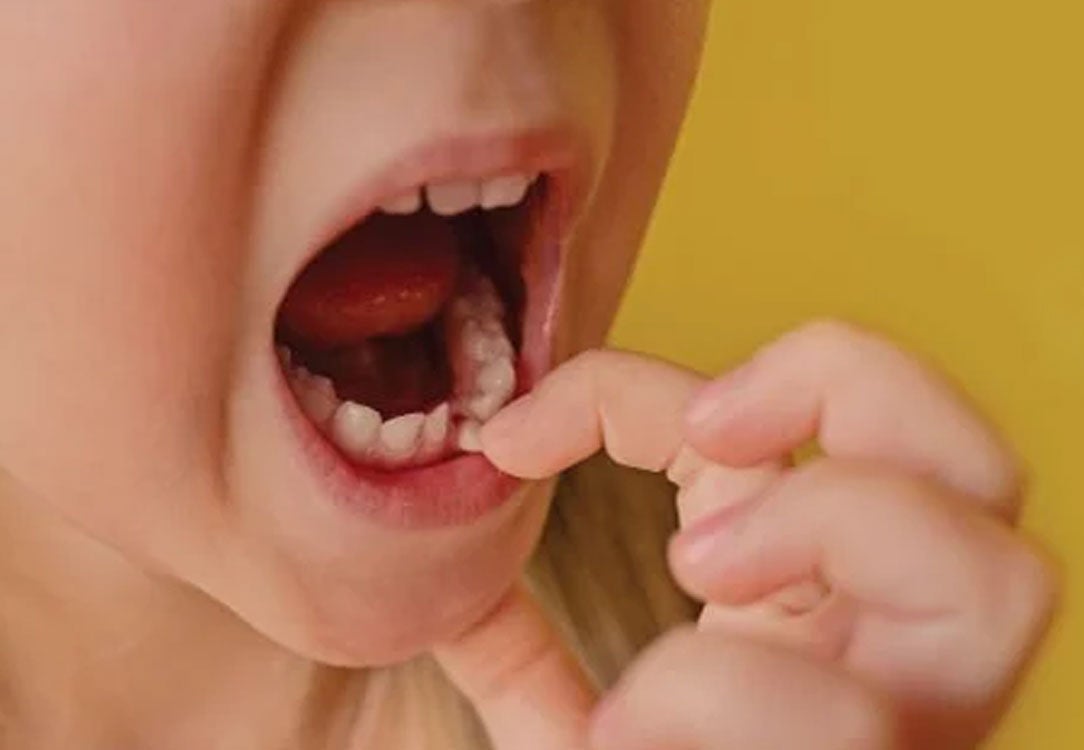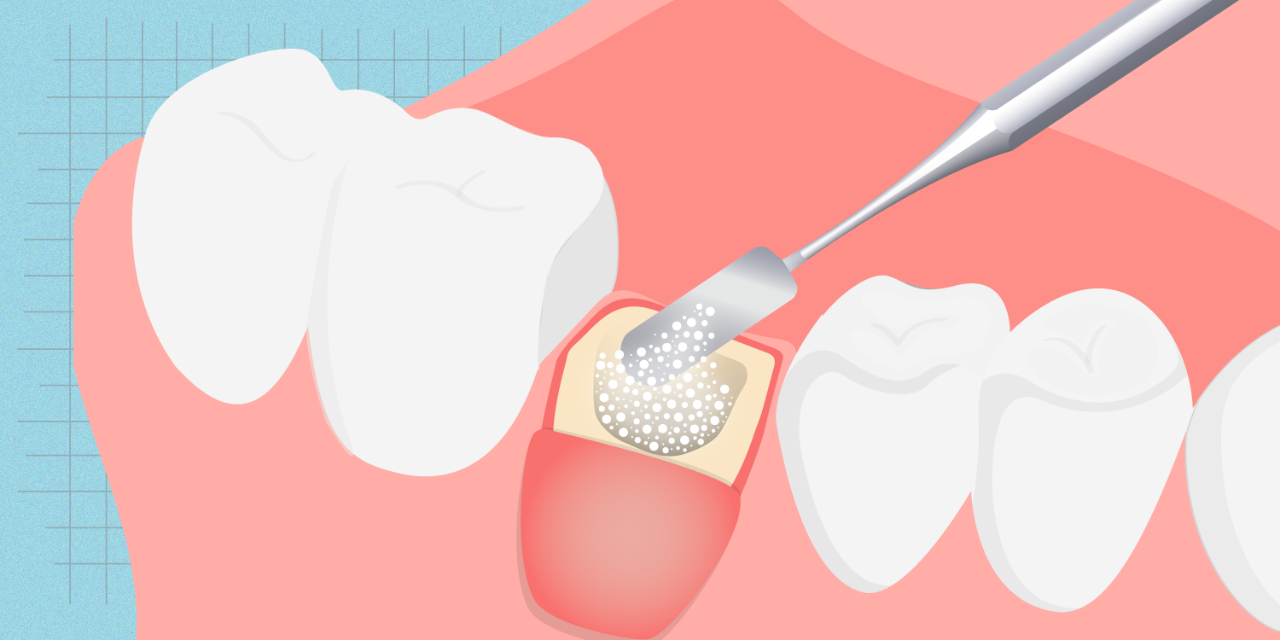If you lose one or more of your permanent teeth, speaking with your dentist about replacing the missing teeth is essential to maintaining full functionality in your mouth. Gum disease, decay, and trauma to the mouth can all be situations that can lead to a damaged or missing tooth. To avoid additional oral problems in your mouth, your dentist may recommend replacing the missing tooth with an implant, bridge, or even full or partial dentures so that the gap does not affect the adjacent teeth as well as the health of your jaw.
There are scenarios when it is OK to leave a tooth missing, but it greatly depends on where the missing tooth is located in your mouth and how much chewing pressure is placed on that position. Wisdom teeth, for example, are not replaced once they are removed because they are located so far back in the mouth, making them difficult to clean and less useful when it comes to chewing.
What Happens If I Don't Replace a Missing Tooth?
According to the ADA, most adults between the ages of 20 and 64 have three or more decayed or missing teeth. If you have a missing tooth and aren't able to replace it because of expense or other factors, a few things can happen that will negatively affect your mouth. When the tooth is no longer there to stimulate the jawbone when chewing food, the message is sent to the jaw that there is no tooth there, and the minerals that are used to support the tooth root can be absorbed and used in a different location in the body. This causes bone loss in the jaw, which weakens the jaw in this area, causing the teeth adjacent to the missing tooth to become less secure.
Similarly, the tooth above or below the missing tooth now does not have its counterpart to butt up against it. This allows it to grow longer than it normally would if there was a tooth providing resistance when chewing. While small shifts and changes in your teeth may not seem like cause for concern, the amount of chewing, speaking, and other activities that you do with your mouth can make a small problem into quite a big issue simply because of the amount of use.
Are Teeth Implants Necessary After Extraction?
Depending on why you are having a tooth extracted, getting a dental implant to replace the tooth is often recommended by many dentists. While dental implants are expensive and involve a lengthy procedure, they look and function much like natural teeth and can stop the possibility of jawbone deterioration and shifting in other teeth. After an extraction, you will need to wait at least ten weeks for your mouth to fully heal before starting the process of replacing the tooth with an implant. While there is no time limit on how long you can wait after you lose a tooth before getting a dental implant, if the jaw begins to deteriorate, you will need additional procedures before the implant can be secured.
Alternative options for replacing teeth
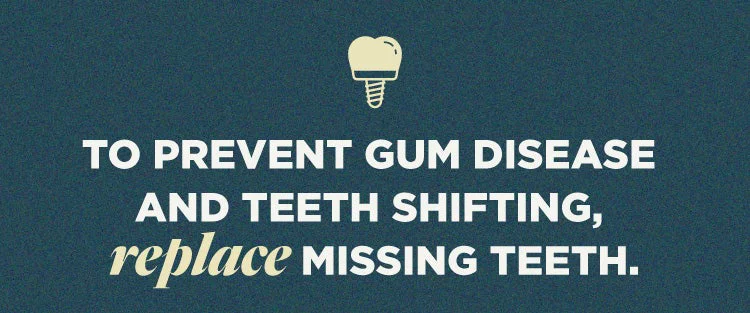
A dental bridge is a more affordable option when compared to a dental implant and functions just as the name implies, like a bridge of teeth in your mouth. If you have a missing tooth, the two teeth on either side of the gap are filed down and shaped so they can be capped with a dental crown. A fake tooth is attached in between the two crowns and all three devices are then placed together and secured into the mouth. Once the two crowns are in place, the fake tooth in the middle fills in the gap without actually being attached to the gums.
Alternatively, you can use full or partial dentures in place of dental implants. This is the most affordable option when it comes to replacing missing teeth. Dentures can be easily removed for cleaning but can cause irritation if worn for a long period of time. While this may seem undesirable, because of their affordability, dentures can be a great option to help avoid some of the negative effects of losing multiple teeth.
Why Is It Important to Replace Missing Teeth?
Replacing a missing tooth is important because of the negative health effects it can cause. Poor oral hygiene can lead to tooth decay or gum disease and can eventually cause you to lose a tooth if not addressed by a dentist. If the missing tooth is not replaced and the surrounding teeth begin to crowd together, cleaning the teeth will become more difficult, putting more teeth in jeopardy of suffering from cavities and gum disease.
Another reason why replacing a missing tooth is important is because of the issues it can cause in your jaw. As the bone begins to deteriorate under a missing tooth, teeth on either side of the gap will shift, causing your bite to become off and possibly causing chewing changes that could put a strain on your jaw muscles. This new stress on the muscles in your jaw could lead to a painful condition called TMJ disorder. In a similar way, a missing molar will also affect your ability to chew properly as you attempt to chew your food around the missing space. Even subtle changes in your chewing habits can also contribute to stress on your jaw muscles. Keeping your teeth fully functional is important to keeping you fully functional, so replacing a missing tooth is important.
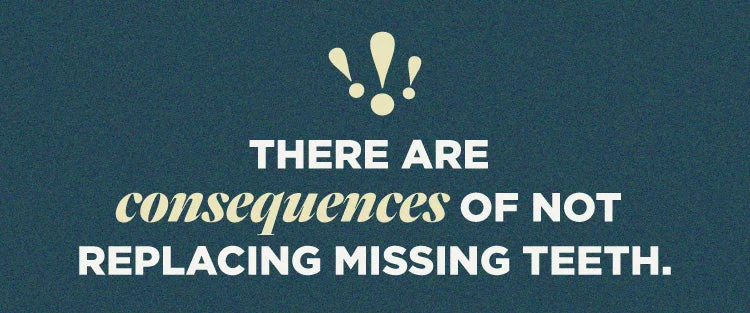
Consequences Of Not Replacing Missing Teeth
Finding a Dentist in Your Community
Instead of suffering undue pain and further damage to your teeth because of a missing tooth, make an appointment with a dentist to discuss solutions to replace your tooth. Check out Smile Generation's Find a Dentist tool to find the right professional in your community to help get your oral health back on track with by replacing your lost tooth.
Find your trusted, local dentist today!
Sources
- "Missing Teeth." Mouth Healthy, 3 Oct. 2022, https://www.mouthhealthy.org/en/az-topics/m/missing-teeth
- "TMJ Disorders." Mayo Clinic, 28 Dec. 2018, https://www.mayoclinic.org/diseases-conditions/tmj/symptoms-causes/syc-20350941
Smile Generation blog articles are reviewed by a licensed dental professional before publishing. However, we present this information for educational purposes only with the intent to promote readers’ understanding of oral health and oral healthcare treatment options and technology. We do not intend for our blog content to substitute for professional dental care and clinical advice, diagnosis, or treatment planning provided by a licensed dental professional. Smile Generation always recommends seeking the advice of a dentist, physician, or other licensed healthcare professional for a dental or medical condition or treatment.


